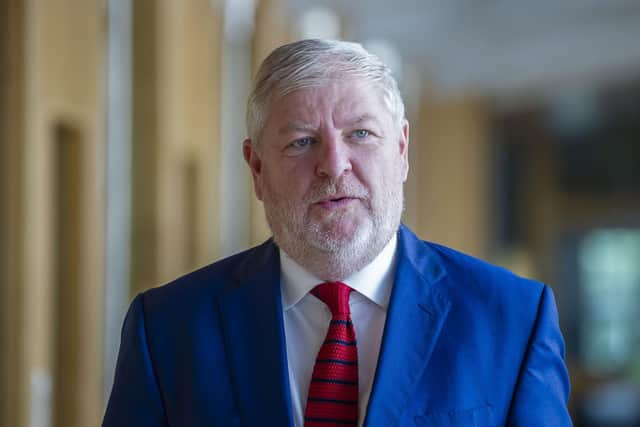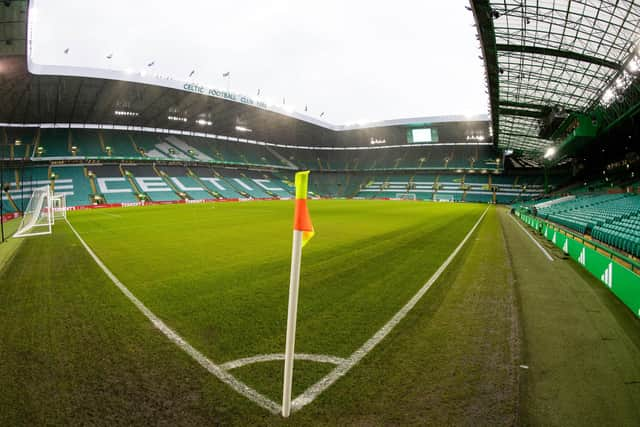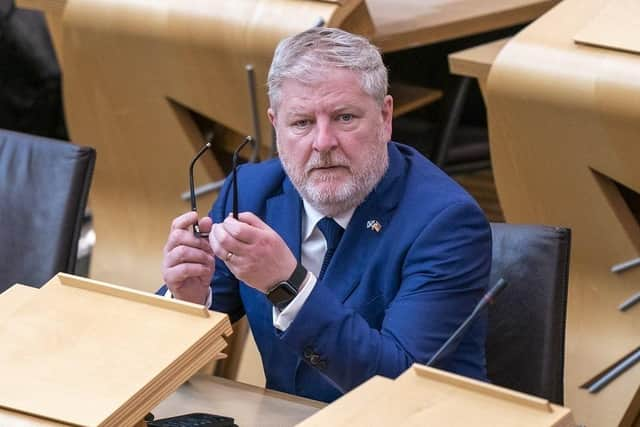Scottish licence fee expected to pay for new broadcaster under independence vision
A new Scottish licence fee would be created under new plans to shake up the broadcasting landscape in an independent Scotland.
The Scottish Government said its proposed public sector broadcaster would “better reflect and prioritise the specific needs and interests of Scottish audiences". The licence fee model is said to be the “best option” for funding a new TV, radio and online service.
Advertisement
Hide AdAdvertisement
Hide AdHowever, the government has admitted its plans will need the backing and co-operation of existing broadcasters such as the BBC and Channel 4 to ensure that audiences in Scotland can continue to access its programmes.


There are no details to date of any proposed amount for a new Scottish licence fee, or exactly how the income would be raised.
The government has raised the prospect of the new Scottish broadcaster buying in programmes on a “case-by-case basis” in future.
Under the government's plans, key priorities for the new service would include ensuring “wider availability” of major sport events, men’s and women’s international qualifiers, and delivering “impartial news and distinctive programming”.
The proposal has emerged in a new blueprint for the future of the culture sector under independence, which states it is “vital that audiences in Scotland can access accurate, reliable news and diverse entertainment”. However, the government has pledged it will work with other public sector broadcasters, such as the BBC and Channel 4, to ensure audiences can still access a “wide range” of their programming.


The blueprint states: “In an independent Scotland, this government would commit to respecting the existing BBC Charter with no change to the existing licence fee payable in Scotland at the point of independence. This would mean that at the point of independence, audiences would continue to have access to the BBC without any additional cost. Existing licence fee payment exemptions and concessions would also be maintained.
"In future, the funding of a new Scottish public service broadcaster will be determined by the Scottish Parliament and government of an independent Scotland, in negotiation with the broadcaster and in consultation with the Scottish people.
Advertisement
Hide AdAdvertisement
Hide Ad"Independence would give Scotland the power to set its own future priorities for funding of, and access to, broadcast services. This would include the ability to engage with partners around the UK and beyond to explore continued access to the programming and services that matter to Scottish audiences.
"This may mean, for example, a formal bilateral agreement covering a range of programming on an ongoing basis or buying and selling programming on a case-by-case basis.”


The government blueprint states the new public service broadcaster would be “supported to prioritise and encourage accurate, impartial, and trustworthy news provision and recognise the distinct requirements in Scotland when it comes to reporting about local, national and world news”.
The plan adds: “A strong governance and regulatory structure, independent from government, but accountable to the Scottish people through Parliament, as well as a funding structure that ensures a new Scottish public service broadcaster is not reliant on advertising or subscription for funding, would be expected to be key.
"This government would expect that a licence fee funding model would likely remain the best option for the broadcaster, subject to consultation with industry and audiences and reflecting the broadcasting landscape at the time.”
Asked whether the new public broadcaster was eventually intended to replace the BBC in Scotland, culture secretary Angus Robertson suggested the government would have to work with the corporation, but it would up to the broadcasters like the BBC and Channel 4 to decide whether it wanted to continue providing services in Scotland.
He said: “We stand fully behind public service broadcasting and a licence fee model. Those are things that we would wish to see continue. But it will involve significant change.
Advertisement
Hide AdAdvertisement
Hide Ad"We have excellent journalism in Scotland and fantastic broadcasters already based in Scotland. It is about having regulatory and democratic accountability, which is currently not the case, because decisions about these things are made elsewhere. Different organisations will have to decide how they wish to maintain their services in Scotland.”
Scottish football chiefs have insisted it is open to broadcasters to bid for the rights to show international matches. However, the rights are controlled by the sport’s European governing body, UEFA, with Premier Sports due to show men’s international matches until 2028 under its existing contract.
Mr Robertson added: “As broadcasting is still reserved, it is the UK Department for Digital, Culture, Media & Sport which has the lead role in the designation of sporting events. If the Scottish Government was in charge of broadcasting, I think we would be making different decisions.
"It is deeply regrettable, particularly as the men’s and women’s football teams have been doing so well, that we have not been able to follow their successes on terrestrial television. It's one of the areas where, if Scotland was able to make the decisions that normal countries do, it would make a big difference. I think it would be widely welcomed.”
A spokesman for BBC Scotland: “The BBC is an important part of the creative industry in Scotland and across the UK. Future broadcasting policy – and where power over broadcasting sits in Scotland – is a matter for governments and parliaments to debate.”
Scottish Labour’s culture spokesman Neil Bibby said: “The SNP are playing the same old tunes. Scrapping the BBC will not enrich the cultural lives of people in Scotland. They broke their funding promises to the cultural sector last year – and after the Covid inquiry revelations this week no-one can trust this government’s promises any longer.
"Labour will deliver real and practical change to support Scotland's culture sector starting with ensuring there is an EU wide agreement for touring artists.”
Advertisement
Hide AdAdvertisement
Hide AdDonald Cameron MSP, culture spokesman for the Scottish Conservatives, said: "It’s rich of SNP minsters to be using this sort of rhetoric on culture when they have repeatedly shifted the goalposts on vital funding for our struggling arts sector.
"Rather than wasting taxpayers’ cash on pushing out yet another divisive paper on independence, Angus Robertson should focus his attention on helping this sector, which has been mistreated by the SNP for too long.”
Pamela Nash, chief executive of the Scotland in Union campaign, said: “The SNP-Green government has a nerve to talk about culture given the extent to which it has decimated the sector during its time in power. This is now the tenth paper in which the Scottish Government has ignored the pressing issues of the day in order to fantasise about its own selfish constitutional obsession.”
Comments
Want to join the conversation? Please or to comment on this article.
